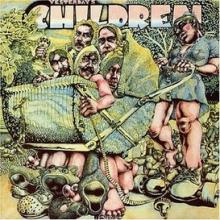Getting together in ’73 or so, the band plugged the gap between the MC5 and the Stooges who were newly demised and what would happen in New York pretty soon. No other band distilled the ‘60s stuff that came out of the Motor City as well as these folks.
And in the September ’76 issue of CREEM, writer Air-Wreck Genheimer described the Punks in the following terms.
The Punks played in such a gut grabbing manner that your ear bones feel like they're getting socked in the jaw and cunnilinguisized at the same time.
Apart from the fact that cunnilinguisized is simply a good word, albeit fake, the summation of the band’s sound is rather apt. Even while the group struggled to gain any sort of proper recognition in its hometown, the quartet saw fit to high tail it outta town and hit up New Yawk City. Apparently, the band met up with the folks at Punk, but were confused by the punk posturing that was going on. After all, the MC5 mighta ripped a few chords that presaged the genre, but they were thoughtful, aggressive hippies – if that makes sense. Much the same cold be said for Iggy Pop. Just listen to any interview he gives nowadays.
Anyway, the Punks were able to record some tracks here and there – but since I’ve only been able to track down a digital version of a self titled disc, I can’t say when or where it was laid down. It should be assumed that the tracks were cut in Detroit and not the NYC simply based upon the fact that the group apparently didn’t survive too long in the big city.
There’re a few different albums lurking in dustbins. This version of the Punks catalog, though, includes a scant nine songs even as the disc clocks in at almost fifty minutes. The extended workouts are all repetitive chords and some thudding, cave man drumming – and yes, the Stooges could be described in the same terms. The level of total disregard for self and surrounding isn’t always present and while “Sinister Boy” features a weird stomp ala Iggy and company, the guitar solo that’s interjected doesn’t quite match stuff from the Williamson axis.
Any criticism of the group could just be chalked up to the band being a transitional assemblage of musical ideas. The ennui of latter groups hadn’t embedded itself in the Punks and they weren’t overtly literary or arty, just good. It’s not an indispensible part of American punk history, but an entertaining one.
